LONDON – It’s been on the festival circuit for well over a year now, and received its UK theatrical release this Summer just gone, and yet we’re still talking about First Reformed. This indelible, provocative piece of cinema is the latest from the venerable Paul Schrader (Taxi Driver), and it’s one of his finest ever productions. Available now on DVD and Blu-ray, it may not be a film that particularly celebrates the notion of faith, and yet it remains one helluva Christmas present all the same – and we spoke to Schrader himself to discuss the film. He speaks about his inclination to make a film that deals with spirituality and faith, and why First Reformed is unlike anything else he’s done before. He also comments on climate change, the brilliance of Ethan Hawke, and what drives him as a storyteller.
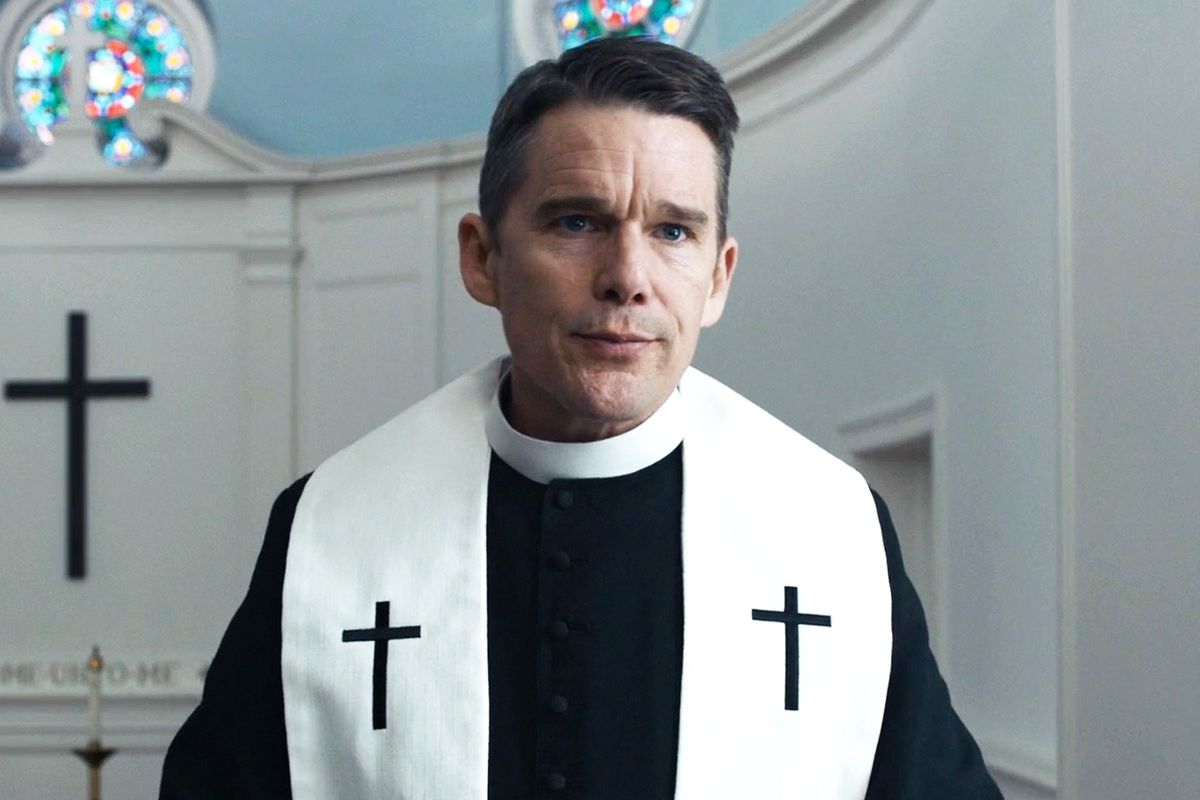
I’ve seen the film three times now, and it’s got better with every viewing.
Thank you. I usually like to walk away from my films after I’ve finished, but it was on a plane last night from New York, and I found myself caught up in it one more time.
So you can get emotionally involved in your own movies, like an audience member might?
It all depends on the movie, but occasionally, yeah, you do get caught up in it. If enough time has gone by you don’t think you will, but then you do.
The film opens up, effectively, with a scene that confirms mankind is f*****, and it’s a lengthy conversation too. When you make movies now do you feel you have to convince studios or producers to let you do your thing and take these risks? Or have you reached a point in your illustrious career where you can be adamant about your vision?
No I’ve not reached that point. But what has changed is the technology. So films that were once financially irresponsible, are now financially responsible because they cost half as much. This film was made in 20 days, when I began filming it was 45, so that means in practical dollars, it’s half as much. So then you can to someone, at this budget, this is a valid investment, so that is one of the benefits of the new technology.
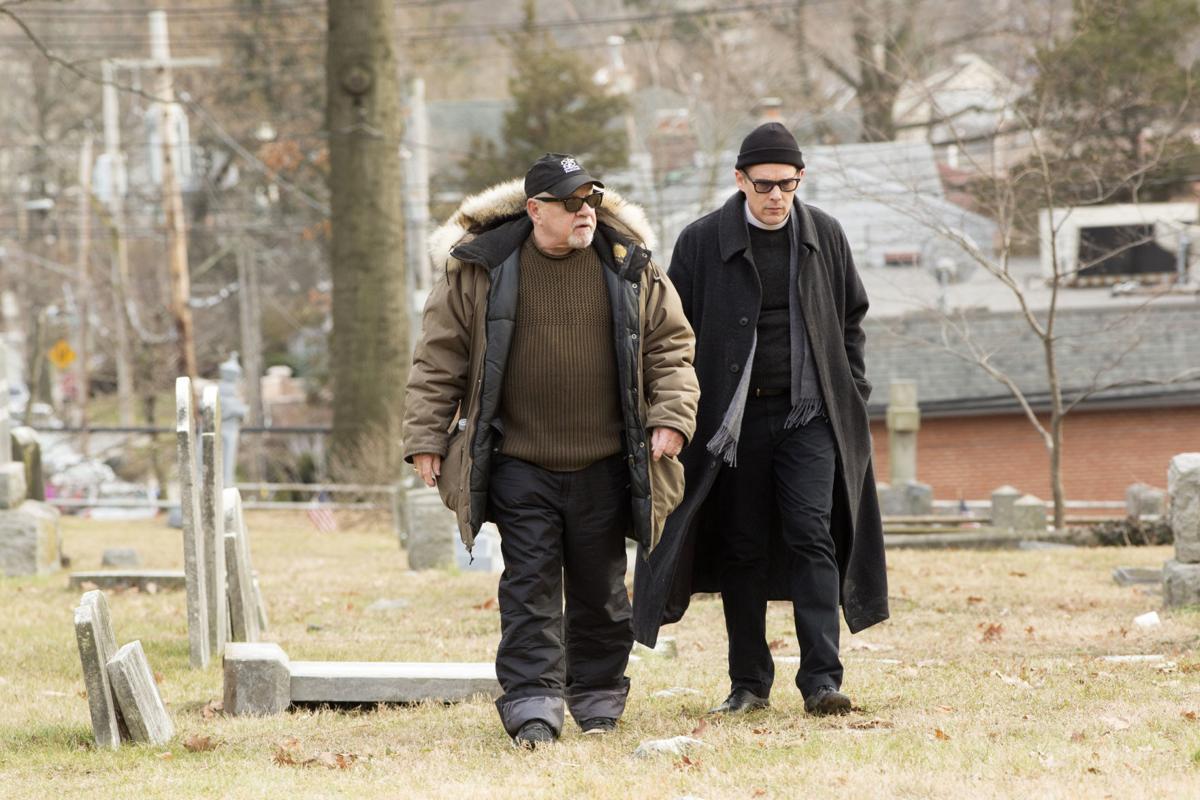
You’ve said in interviews before that this film is unlike anything else you’ve done before – in what way do you think this is unlike your other work?
Even though I had written about, and respected and enjoyed spiritually contemplative films, I didn’t ever think I would make one myself. I was just too enamoured by action and empathy and technological realism, sex and violence, and I just didn’t think I was ever going to go in that direction. Then several years ago I realised that maybe it was time.
When dealing with faith in cinema, how conscious do you have to be when exploring that world, to remain respectful? Of course you’ll always just want to tell your story how you want to tell it, but religion is something that is very precious to so many people – who may see your movie.
It was interesting in this case because I’ve set out to make a slow movie, and I failed, because the movie gathered a kind of obsessive force that propelled it forward, and so it’s a push-pull between the slowness of the style and the obsessiveness of the inner journey.
You’re also dipping in to the religion vs science debate. That’s an interesting theme, and one that is seldom explored in film, was that one of the reasons you felt compelled to tell this story?
Well, you know, mankind has been having this discussion for tens of thousands of years, why are we here, and what is our purpose? It was always a theoretical discussion. Now in the last ten or so years, people are starting to think that maybe it’s not so theoretical after all. You always knew in the past that your children and their children and their grandchildren would have the same conversations, but we’re not so sure about that anymore.
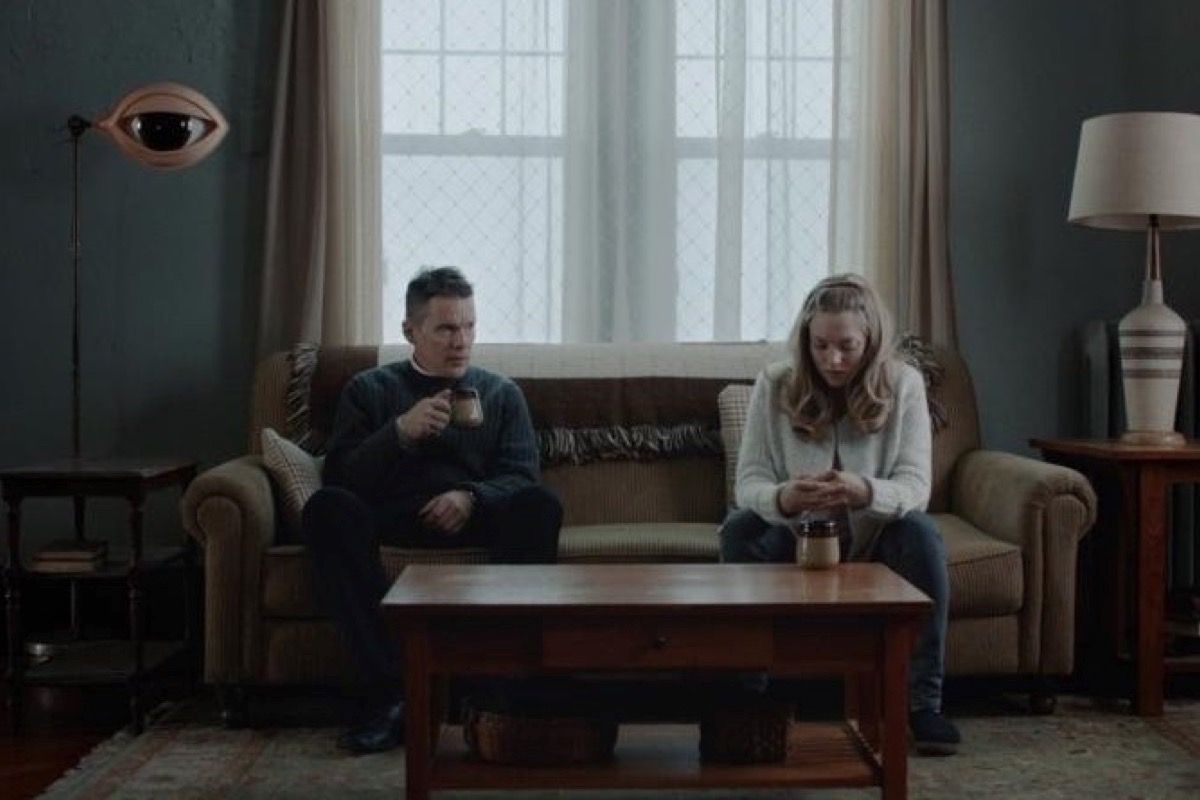
Why do you think people still deny climate change? Why isn’t the science and the evidence to do enough to convince people?
Because our gorilla brains are not able to divorce themselves from the needs of self-interest. You know, evolution has taken us about as far as it can, and now it will discard us.
Yeah and one of the climate change deniers, just so happens to be the President of the United States. You’ve been, as an artist, very outspoken against Trump. How important do you think it is, in a time like now, that people use the arts and they use their influence to ensure we’re all talking about it?
Well actually you realise how little power the arts actually have. When you’re in a situation like this. I think the decision has been made, people take about the tipping point or the point or no return, but I think we’re past that, I think we made that decision. Now it’s just a question of how long it takes before our decision become decisive.
Slight change of pace, but I just wanted to speak to you about Ethan Hawke. He’s one of the best actors working today, he’s almost underrated as an actor. He must’ve been a pleasure to direct on this project?
Yeah, he’s something of a renaissance man. He’s a playwright, a novelist, a screenwriter, he’s a director, an actor, he does theatre, he’s in films, and so when you deal with him you’re dealing with an intelligent man with a clear perspective on the arts. You can discuss things with him in a clear-headed way that sometimes you can’t discuss with other actors. The first conversation I had with him I said, do you know what a recessive performance is? And he said yes, and I said that’s what we’re gonna do. Every time you sense the viewer is interested in what you are saying, lead them away. Then if they’re still interested lead them away some more. And he understood completely how that withholding mechanism would work for an actor.

I also thought Cedric the Entertainer was excellent in this. It felt like a departure for him, quite a different role we usually see from him. What made you decide he was the right man for that particular character?
Well we have such a tendency to stereotype megachurch pastors. We have a box and we stick them all in that box, and I had to fight that stereotype, and so I started thinking of how I could get around that, and I started looking for someone who the audience would not think of as being holier than thou. And it also helped that he was black, to break the stereotype. So that was really my thinking, because I didn’t want him to be a bad guy, but the audience will make him a bad guy if you don’t cast him right.
Looking over your work, it seems like no film of yours is ever comparable to the last. Is there a conscious decision from you to constantly try new things, or do you just go with what stories are interesting in you in the moment?
No, you’re always trying to do something you haven’t done before. You know, the model of Kubrick is more attractive to me than the model of Hitchcock. Kubrick was always trying to do something that he had never done before, that nobody had ever done before and that is very tempting, it really makes you stay awake. Can I make a movie like this? What would this be like? Can I pull this off? In this case I thought, can I really make a spiritual film, is it possible for me to do that? So now you’ve set a goal, can you make a film like The Canyons, could I make a DIY film? You just have to try and make your own film and get away with it – and I did! Or a film like Dog Eat Dog, could you make a Tarantino film? Well yeah let’s give it a try.
Do you find that you’re still learning? You’ve obviously so experienced and have been in this industry such a long time, but do you feel like it’s one of those jobs where you’re constantly absorbing new techniques as you grow older?
Yeah but it changes so fast, the audiences change, the technology changes, everything changes so fast that it’s a medium in permanent transition, and it always will be from this point on. So whatever we learnt last year is not the same as what’s happening this year.
So what is your next project?
I’ve got two things I’m working on. One is a western and the other is a 50s crime movie. I’ve written them both and there is interest in financing them both, so we’re at the casting stage.
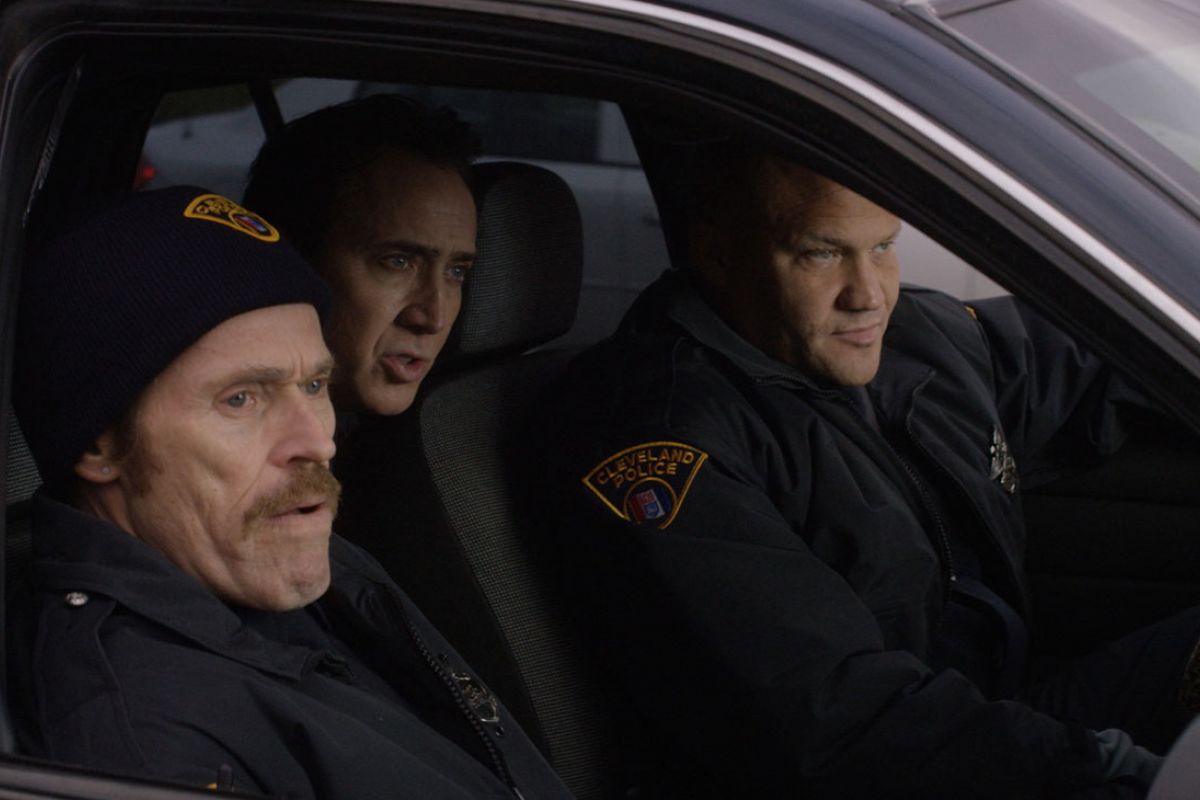


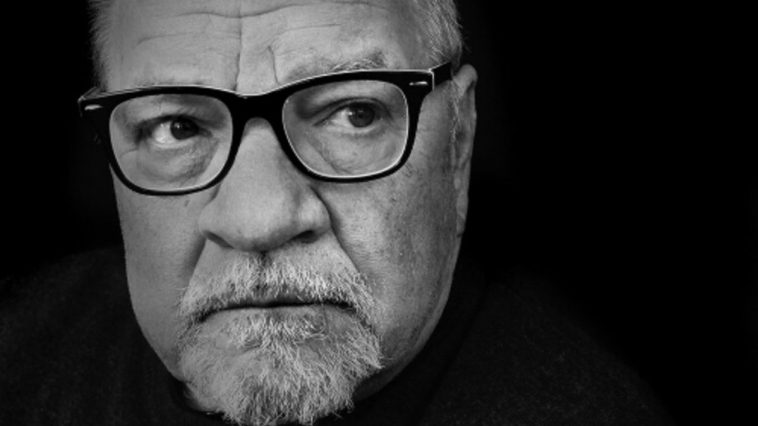
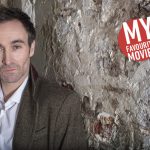























Leave a Comment